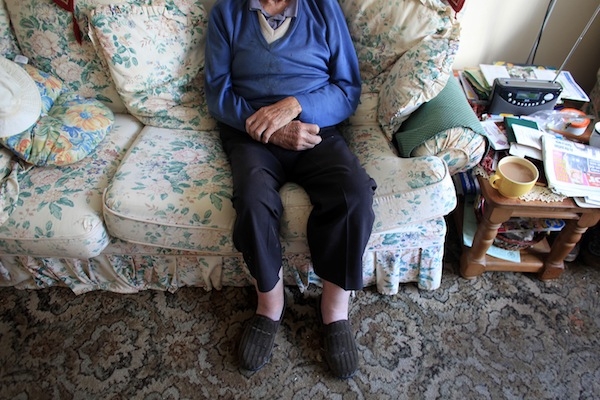Gill Pharaoh was a geriatric care nurse who had spent years caring for the elderly. When she herself began to grow old, she decided that she didn’t want to go through what her patients had suffered, travelled to Switzerland, and passed away at an assisted dying clinic. She was not terminally ill. She didn’t want to be elderly and infirm.
Given Pharaoh worked with those who are old, she clearly knew what the lot of the elderly in this country is. And she didn’t like it. She wrote before her death on 21 July that she didn’t want to go further ‘downhill’ and that life ‘is not going to start to get better’.
She was someone who was horrified by the natural process of ageing and who wanted to take control of her death. Hers is an unusual case. But one of the risks of the Assisted Dying debate is that it detracts from the debate about how to improve the experience of the living. Not everyone will think that being ‘an old lady hobbling up the road with a trolley’ is an unbearable loss of dignity, as Pharaoh did.
In his book, Being Mortal: Medicine and What Matters in the End, Atul Gawande argues that:
‘Certainly suffering at the end of life is sometimes unavoidable and unbearable, and helping people end their misery may be necessary. Given the opportunity, I would support laws to provide these kinds of prescriptions to people. About half don’t even use their prescription. They are reassured just to know they have this control if they need it. But we damage entire societies if we let providing this capability divert us from improving the lives of the ill. Assisted living is far harder than assisted death, but its possibilities are far greater, as well.’
Campaigners against assisted dying may disagree with Gawande’s support for prescriptions of medication that would allow a patient to end their lives if things become unbearable. What if life is physically bearable but painful as a result of an illness or disability, but emotionally overwhelming because someone fears being a burden on their family?
But his final two sentences about assisted living highlight a vicious circle that already exists but could be exacerbated by assisted dying, which is that it is no wonder people might want to die to avoid growing old when old age and the treatment of those who are old is given such little value in our society, and where the death itself becomes more important than the years of life. When we start thinking that those years of hobbling and relying on those who may once have relied on us are not valuable and embarrassing, then we stop worrying so much about making them as bearable as possible. It would become acceptable to deem those years unbearable simply because they represented a different stage in life, even when they did not involve unbearable pain.







Comments